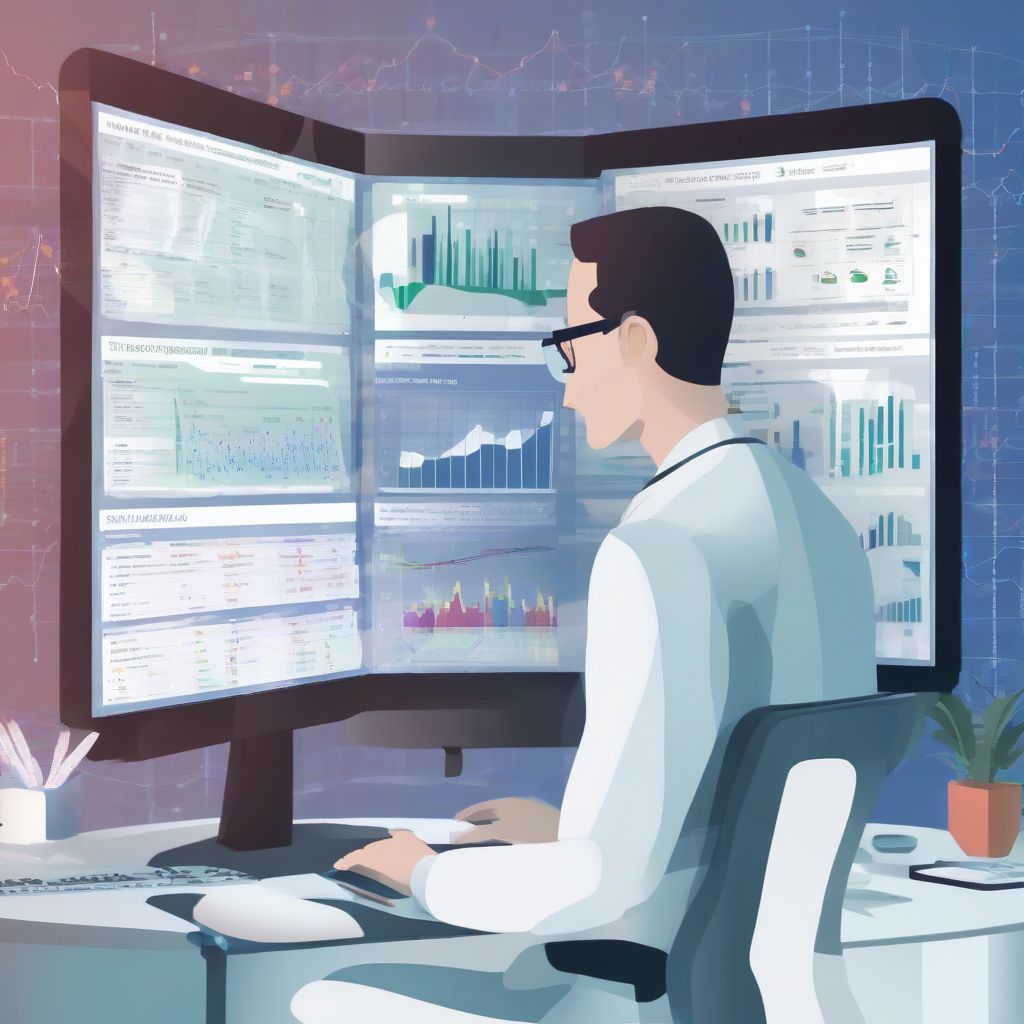Big Data Analytics in Healthcare: The Future of Medicine is Here
Big data analytics is changing the world around us, and healthcare is no exception. This data-driven revolution is leading to incredible advancements in the way we understand, diagnose, treat, and prevent diseases. Let’s dive into how big data analytics is transforming the healthcare industry.
Understanding Big Data in Healthcare
In healthcare, big data refers to the massive and complex datasets generated from various sources, including:
- Electronic Health Records (EHRs): Patient demographics, medical history, diagnoses, medications, allergies, etc.
- Medical Imaging: X-rays, MRIs, CT scans, providing visual data for diagnosis and treatment planning.
- Genomic Data: DNA sequencing, providing insights into an individual’s genetic predispositions and disease risks.
- Wearable Devices: Fitness trackers, smartwatches, collecting data on activity levels, heart rate, sleep patterns, and more.
Big Data Analytics In Healthcare involves collecting, storing, analyzing, and interpreting these massive datasets to extract meaningful insights that can improve patient care, optimize operations, and drive medical research.
How Big Data Analytics is Revolutionizing Healthcare
The applications of big data analytics in healthcare are vast and ever-evolving. Here are some key areas where it’s making a significant impact:
1. Improved Diagnostics and Treatment:
- Predictive Analytics: By analyzing historical patient data, big data algorithms can identify patterns and predict the likelihood of developing certain diseases. This enables early intervention and personalized preventive measures.
- Diagnostic Accuracy: Machine learning algorithms can analyze medical images and assist radiologists in detecting abnormalities with higher accuracy, leading to faster and more accurate diagnoses.
- Personalized Treatment Plans: By considering individual patient characteristics, genetic information, and lifestyle data, big data analytics enables the development of tailored treatment plans, optimizing outcomes and minimizing adverse effects.
2. Enhanced Patient Care and Experience:
- Remote Patient Monitoring: Wearable devices and remote monitoring technologies generate real-time data on patients’ vital signs, enabling healthcare providers to track their condition and intervene proactively when necessary.
- Reduced Hospital Readmissions: Predictive models can identify patients at high risk of readmission, allowing healthcare providers to implement targeted interventions and follow-up care plans, reducing unnecessary hospital visits.
- Improved Patient Engagement: Big data analytics can personalize patient communication, providing timely reminders for appointments, medication adherence, and educational resources, empowering patients to actively participate in their healthcare journey.
3. Streamlined Operations and Reduced Costs:
- Optimized Hospital Operations: Big data analytics can forecast patient volume, optimize staff scheduling, and streamline bed management, improving efficiency and reducing wait times.
- Fraud Detection and Prevention: By analyzing claims data, big data algorithms can identify patterns of fraud, waste, and abuse, saving healthcare systems billions of dollars annually.
- Drug Discovery and Development: Analyzing vast datasets from clinical trials and research studies accelerates the drug discovery process, identifying potential drug candidates and predicting their effectiveness.
The Future of Big Data in Healthcare
The field of big data analytics in healthcare is rapidly evolving, with exciting advancements on the horizon:
- Artificial Intelligence (AI) and Machine Learning: AI-powered algorithms are becoming increasingly sophisticated in analyzing complex medical data, leading to even more accurate diagnoses, personalized treatments, and efficient healthcare operations.
- Interoperability and Data Sharing: The seamless exchange of health information between different healthcare systems will unlock the full potential of big data analytics, enabling researchers and clinicians to access a wealth of data for improved decision-making.
- Ethical Considerations and Data Privacy: As big data analytics becomes more prevalent in healthcare, it’s crucial to address ethical concerns surrounding patient privacy, data security, and algorithmic bias, ensuring responsible and equitable use of this powerful technology.
dungcutuve.net/wp-content/uploads/2024/08/big-data-healthcare-66b6e6.jpg" alt="Big data analytics in healthcare" width="1024" height="1024">Big data analytics in healthcare
Conclusion
Big data analytics is transforming healthcare as we know it, offering unprecedented opportunities to improve patient outcomes, optimize operations, and drive medical innovation. As we continue to unlock the power of big data, we can look forward to a future where healthcare is more personalized, predictive, and proactive than ever before. We invite you to explore our website for more insightful articles on health and wellness topics. Remember to consult with healthcare professionals for personalized advice and treatment.


